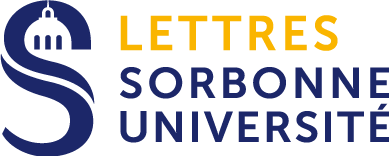Michel DUBOIS, (avec P.Brunet), « Cellules souches et technoscience : sociologie de l’émergence et de la régulation d’un domaine de recherche biomédicale en France», Revue Française de Sociologie, 53-3, 2012, pp.391-428, , 2012
Résumé
Située à la pointe des reconfigurations contemporaines du monde académique, la recherche biomédicale constitue un terrain privilégié pour la sociologie des sciences. Nombre de travaux y décrivent tour à tour la montée en puissance du « chercheur entrepreneur », l’effacement des frontières traditionnelles entre science et industrie, voire l’abandon des principes normatifs censés caractériser en propre la communauté scientifique. Cet article propose d’apporter un éclairage sur ces reconfigurations à partir de l’étude d’un nouveau domaine de la recherche biomédicale— les cellules souches embryonnaires humaines (CSEh) — et d’un acteur central en France : l’Institut des Cellules Souches pour le Traitement et l’Etude des Maladies Monogéniques (ISTEM). Renouant avec une tradition sociologique dédiée à l’étude des spécialités scientifiques, l’article analyse l’émergence d’ISTEM du double point de vue des temporalités qu’il s’agit de faire coïncider dans un projet unique et de son inscription territoriale dans le bioparc Evryen. En adoptant une conception élargie de la régulation des sciences, l’article démontre (1) l’importance qu’il y a pour le sociologue à ne pas interpréter la logique d’action scientifique à partir d’un cadre trop réducteur et (2) à partir d’une comparaison internationale entre la France et l’Angleterre, la nécessité de substituer à une conception de la technoscience comme transgression une approche centrée sur le régime organisationnel du travail scientifique.
article accessible en ligne :
Summary
Stem cells and technoscience: sociology of the emergence and regulation of a biomedical research field in France.
Biomedical research is on the cutting edge of contemporary reconfigurations of the academic world and thus constitutes an excellent focus of study for sociology of science. Existing studies describe the rise of « researcher-entrepreneurs », the blurring of traditional boundaries between science and industry, and in some cases the abandonment of the very principles supposed to characterize the scientific community. Here we work to clarify these reconfigurations by studying a new biomedical field – human embryonic stem cell research – and a central actor in France, the Institute for Stem Cell Therapy and Exploration of Monogenic Diseases (I-STEM). In line with the sociological tradition of studying scientific specialties, the article analyzes the emergence of I-STEM in terms of both the time frames that have to be made to coincide within a single project and the project’s integration into the Evry bioscience park south of Paris. In applying a broad conception of the regulation of science, the article shows how important it is for sociologists not to use an overly reductive frame for interpreting the logic of scientific action; on the basis of a comparison between France and England, it shows the need for replacing the notion. of technoscience-as-transgression with an approach centered around regimes for organizing scientific work.
zusammenfassung
Stammzellen und Technowissenschaft : Soziologie des Auftauchens und der Regulierung eines biomedizinischen Forschungsgebiets in Frankreich.
An der Spitze des zeitgenössischen Wandels der akademischen Welt bildet die biomedizinische Forschung ein vorzügliches Gebiet für die Wissenschaftssoziologie. Viele Forschungsarbeiten beschreiben abwechselnd die zunehmende Bedeutung des Aufstiegs des « Forscher-Unternehmers », das Verschwinden der traditionellen Grenzen zwischen Wissenschaft und Industrie, oder gar den Wegfall der normativen Grundlagen, die die wissenschaftliche Gemeinschaft als solche auszeichnen solltei!. Dieser Aufsatz möchte diesen Wandel vom Standpunkt der Untersuchung eines neuen biomedizinischen Forschungsfelds beleuchten – d.h . die humanen embryonalen Stammzellen (hESC) – sowie eines zentralen Agenten in Frankreich: das Institut des cellules souches pour le traitement et l’étude des maladies monogéniques (I-STEM) (Institut der Stammzellen zur Behandlung und Forschung der monogenetischen Krankheiten). Dieser Artikel stützt sich auf eine soziologische Tradition zur Forschung der wissenschaftlichen Spezialitäten und analysiert das Erscheinen des I-STEMs, ausgehend vom doppelten Standpunkt der Temporalitäten, die mit einem Einzelprojekt fallen müssen und seine territoriale Einbettung in dem Biopark von Evry. Der Aufsatz übernimmt einen erweiterten Begriff der Wissenschaftsregulierung und zeigt die Bedeutung für den Soziologen, die Logik der wissenschaftlichen Aktion nicht über einen zu eng gesteckten Rahmen zu interpretieren. Ausgehend von einem internationalen Vergleich zwischen Frankreich und England unterstreicht er außerdem die Notwendigkeit, den Begriff der Technowissenschaft als Überschreitung durch eine Herangehensweise zentriert auf das Organisationsregim der wissenschaftlicllen Arbeit zu ersetzen.
resumen
Las células madres y la tecnociencia : la sociología de la aparición y de la regulación de un dominio de investigación biomédica en Francia.
Situada en la cúspide de las reconfiguraciones contemporáneas del mundo académico, la investigación biomédica constituye un terreno privilegiado para la sociología de las ciencias. Numerosos trabajos nos describen una y otra vez la escalada en potencia del « investigador empresario », la supresión de las tradicionales fronteras entre ciencia e industria, o sea el abandono de los principios normativos que supuestamente caracterizan como suya la comunidad científica. Este artículo se propone darnos una explicación sobre las reconfiguraciones, partiendo de un estudio en un nuevo dominio de la investigación biomédica – las células madres embrionarias humanas (CSEh) – y de un factor central en Francia : el Instituto de células madres en el tratamiento y en el estudio de las enfermedades monogénicas (I-STEM). Reanudando con una tradición sociológica dedicada al estudio de las especialidades científicas, el artículo analiza la aparición del I-STEM desde el doble punto de vista temporal que trata de hacerle coincidir en un proyecto único y de su inscripción territorial en el bio-parque evryano. Adoptando una concepción mas grande de la regulación de las ciencias, el artículo demuestra la importancia que tiene para el sociólogo de no interpretar la lógica de la acción científica mediante un cuadro demasiado reductor y, a partir de una comparación internacional entre Francia e Inglaterra, la necesidad de substituir a una concepción de la tecno-ciencia como transgresión un enfoque centrado sobre el régimen organizacional del trabajo científico.


